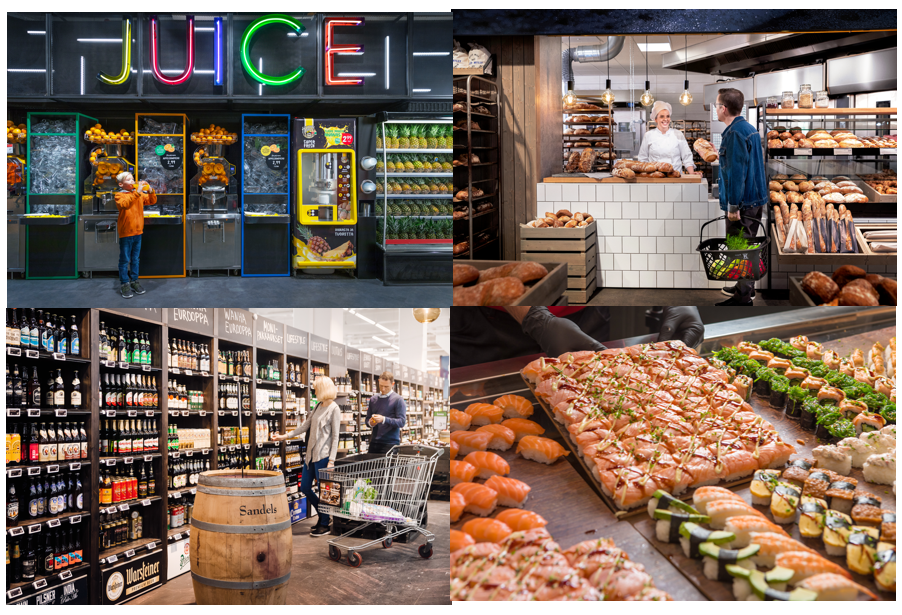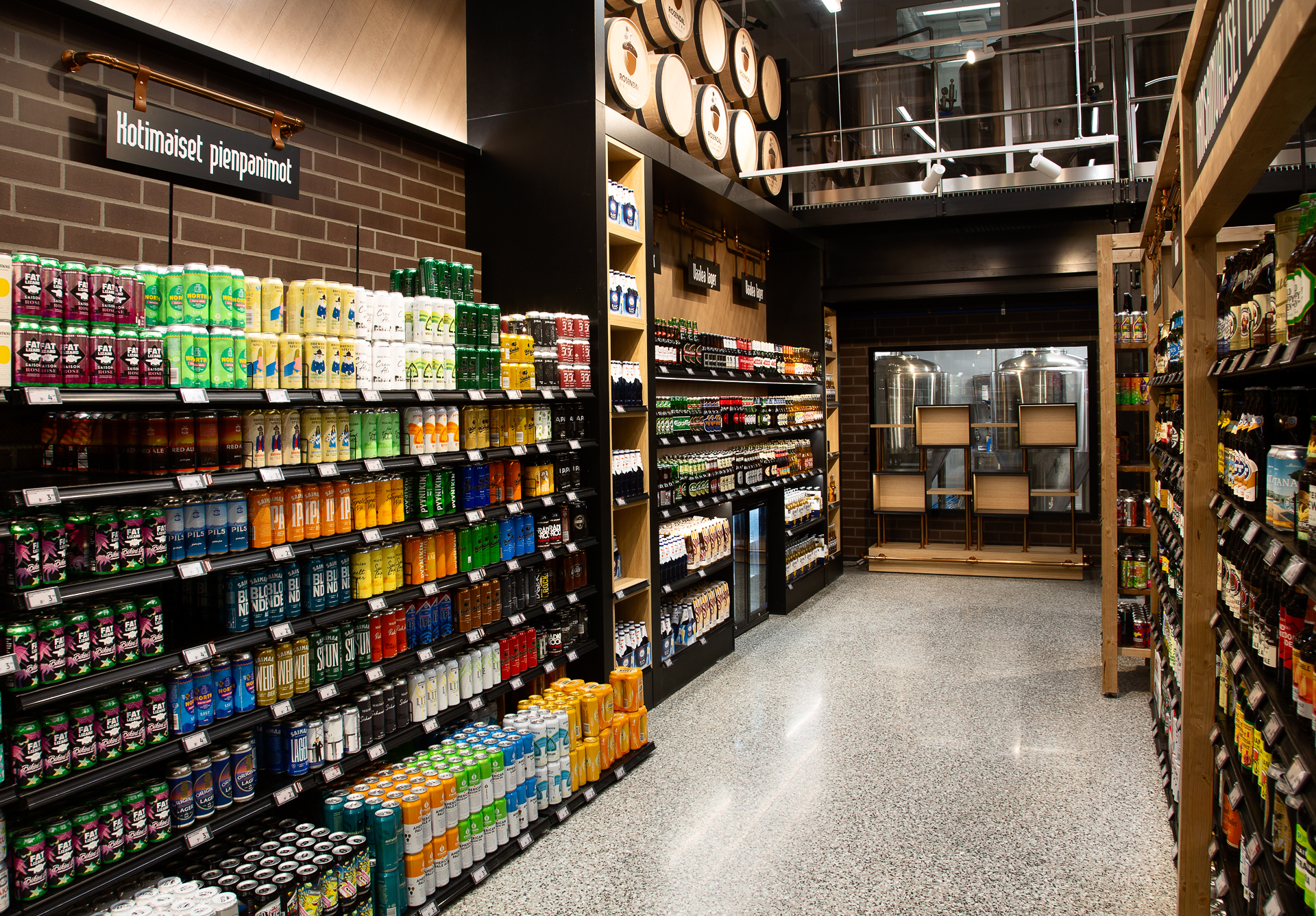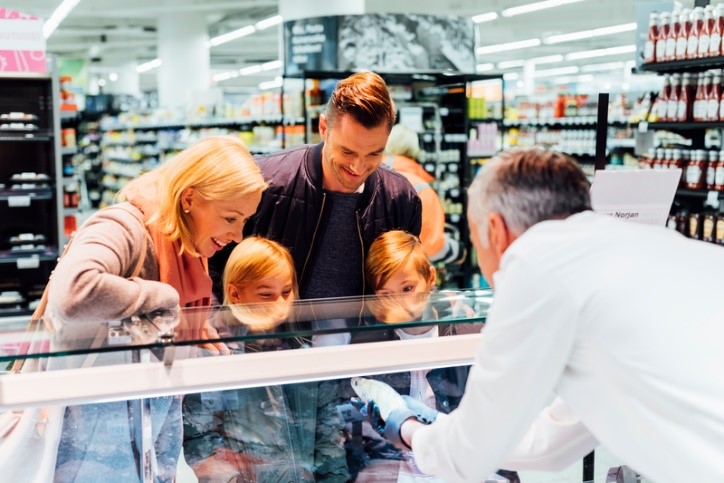

Investor blogs and podcasts
In Kesko’s investor blogs and podcasts, Kesko’s management discusses topical issues relevant to investors and shareholders.
IR blog: Carefully crafted store-specific business ideas are tailored to meet local expectations and demand
When it comes to grocery stores, Kesko does not believe that one size – or indeed type – fits all. Each K Group store is unique, thanks to independent K-retailers who run the stores and store-specific business ideas that allow the retailers to tailor their store to local demand and expectations utilising comprehensive data.
In between 2015 and 2020, K Group invested nearly €1 billion in its store network and will invest an additional €120 million this year, with the main focus on redesigning stores to better implement store-specific business ideas.
What exactly are store-specific business ideas, how are they formulated, and if they are so great, what stops others from straight-out copying them? Kesko’s Vice President of Investor Relations Hanna Jaakkola discussed store-specific business ideas with the President of Kesko’s grocery trade division Ari Akseli and Kesko’s Chief Digital Officer Anni Ronkainen in a recent investor podcast (available in Finnish here). Below is a summary of their discussion in English.

Big untapped potential in grocery stores tailormade to fit local demand and expectations
‘Store-specific business ideas’ are mentioned in Kesko’s strategy as something that lends Kesko a competitive advantage. But what exactly are they?
“A store that operates under a store-specific business idea is a store that has been tailored to fit its unique location and the needs of its local clientele,” explains Ari Akseli.
For the retailers, store-specific business ideas provide a framework that binds together the different aspects of the store.
“Traditionally, when you opened a new store, the focus was on counting square metres and euros. Today, the process is much more nuanced: you must consider which services the store will offer – are theere additional services, is there a service counter, does the store make its own sushi, hamburgers or pizza – how extensive the product selection should be, and what price level suits the local market,” explains Akseli. Data-based store-specific business ideas help to determine what the right concept for each store would be.
Anni Ronkainen notes that the store-specific business ideas should also be replicated online, with each store’s online selections reflecting the in-store selections.
At the moment, over 90% of K Group’s grocery stores have a defined individual store-specific business idea. However, according to Akseli, only half of the stores are currently fully utilising the tremendous potential that these business ideas offer, which is why he sees big untapped growth potential in them.
The role of data is crucial in formulating store-specific business ideas
Both Anni Ronkainen and Ari Akseli stress the importance of data in the formulation of store-specific business ideas.
“The role of data is crucial, as it allows each K-retailer to examine both the local competition as well at the local customer base: are there lots of families with children in the area, or perhaps pensioners? What is the local purchasing power? All this obviously informs the retailer’s decisions on what products to put on the shelves,“ Ronkainen explains.
“Customers are happy to provide their data when they know that the data helps make their local store better or that they will get products and offers that best suit them,” says Ari Akseli.
Kesko obtains data from various sources. When it comes to customer data, K Group’s K-Plussa customer loyalty programme in Finland is one of the main data sources. Says Ronkainen: “We are very happy that our customers are committed to the K-Plussa scheme and of course want to maintain their trust in this regard also going forward. What we’ve decided to do is to open up the data to the customers, thus increasing transparency and building trust.”

Kesko provides its customers access to their own purchase data, also helping them make healthier or more sustainable choices when buying groceries.
Anni Ronkainen notes that in many rural areas, stores have to adjust their selections seasonally when people from cities flock to their summer houses: “Essentially, these retailers have to establish two sets of selections for two sets of customers – one for the local winter customers and one for the summer dwellers. Again, here we can offer the retailers data that makes this task much easier than it was in the past. The data helps the retailers to prepare and anticipate and thus enables a better customer experience.”
In addition to customer data, the stores themselves have various systems that generate other types of useful data. Data also tells retailers how their stores are performing compared to other similar stores, thus helping them to develop their operations further.
Sustainable selections that meet local demand
Kesko has been ranked the most sustainable grocery trade company in the world for seven years in a row. Store-specific business ideas play a role also when it comes to sustainable selections.
“Sustainability is a wide concept and people have various different approaches to it – we must be able to serve them all,” says Anni Ronkainen.
Ari Akseli concurs, noting that different aspects of sustainability are important to different customers: some prefer organic products, some locally-produced products, some FairTrade products. Emphasis also tends to vary between people living in the centre of Helsinki and people living in the countryside: “Store-specific business ideas also can take into account which sustainability aspects are important to the customers of each store,” says Akseli.
Overall, the sales growth of all types of sustainable products is currently exceeding overall growth, and K Group will continue to strive to make sustainable choices easy for customers across the country.
Store-specific business ideas in practice: individuality and innovation
Ari Akseli mentions K-Citymarket Järvenpää as an excellent example of a store that is implementing its store-specific business idea well. The store offers, for example, world-class sushi and Roman-style pizza.
Meanwhile, the recently renovated K-Citymarket Tammisto in Vantaa is the first European hypermarket to house its own in-store brewery, soon making its own store beer. Some stores have their own coffee roasteries, one is considering making its own store liquorice.

K-Citymarket Tammisto in Vantaa houses the first in-store hypermarket microbrewery in Europe. Craft beers have grown in popularity over recent years, and the hypermarket’s own beer is part of its store-specific business idea.
Customers clearly respond to locally crafted selections: “In the store closest to Kesko’s headquarters in Helsinki’s Kalasatama, K-Supermarket Redi, the best-selling long drink is not the national favourite, but one that is made locally in Kalasatama,” notes Akseli.
You can’t copy great retailers and customer experiences
Hanna Jaakkola wonders what stops K Group’s competitors from copying the winning business ideas we come up with. Ari Akseli admits that external elements can easily be copied, from colours to fittings. However, K Group has a unique advantage in its K-retailers, who are independent entrepreneurs: they put their own money on the line, often entire families working for the store, and this makes them very responsive to customer needs.

K-retailers who want to offer their customers the best possible stores and service lend a crucial competitive advantage to K Group.
“K-retailers truly want to be part of the local community and solve any problems and needs their customers might have,” Akseli notes.
The K Group concept where Kesko and the K-retailers work together to ensure fresh products and fast and agile response is also quite unique.
For Anni Ronkainen, the most difficult element to copy is the customer experience, which takes a long time to construct. “Maybe you can copy product selections and the look & feel, but customer experience is the magic dust that cannot be easily copied, and I believe that is our strength,” says Ronkainen.
Ari Akseli concurs, noting that we get customer feedback from people who say they choose K Group stores because their retailer has responded to a customer request for a specific product.
“We even have cases where the retailer has jumped on a boat to personally deliver a missing product to a customer spending their summer on an island – that is something that is difficult to copy,” says Akseli.
Data enables stores to be both customer-oriented and efficient
Customer satisfaction is one thing, but surely maintaining a network of 1,200 grocery stores that are all different from each other cannot be very efficient? Ari Akseli disagrees, noting that thanks to data and modern tools, these days you don’t have to choose between being customer-oriented and being efficient.
“We utilise data to make each store’s offering fit local demand and customers. Data also helps us find the common core where we can utilise centralised logistics, purchasing and IT solutions – without compromising customer focus. We use customer feedback to improve the processes further for the customers, and we use feedback from the retailers to make Kesko’s processes better for them,” says Akseli.
Luckily, these days retailers reach out to Kesko at an early stage to detail exactly they need for a winning store-specific business idea. The better Kesko is able to respond to the needs of K-retailers, the bigger the wholesale for Kesko. Everybody wins.